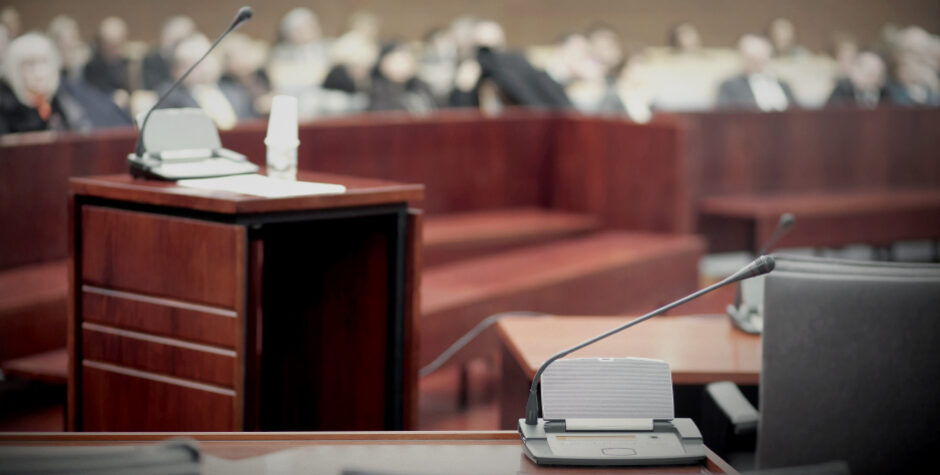Major Victory for Religious Liberty – Jurors Are Allowed To Exercise Their Fundamental Religious Beliefs, Including Prayer
We just scored a major win in court for religious freedom. Through the efforts of the ACLJ legal team – and the power of prayer – we successfully helped defend the right to pray. Even in a jury box, where God’s wisdom and guidance may be most crucial.
We recently told you how in 2017, a United States district court in Florida removed and replaced a juror because of his religious beliefs. During the course of jury deliberations, the juror (Juror 13) mentioned his prayer for guidance about the case to his fellow jurors. His statements were misconstrued by a fellow juror, who reported his statements, leading the court to question him.
While the juror told the court repeatedly that he had no religious or moral beliefs that would prevent him from rendering a proper verdict, the court ultimately decided to remove and replace the juror, finding:
‘beyond a reasonable doubt’ that there was ‘no substantial possibility’ that Juror 13 would be ‘able to base his decision only on the evidence and the law as the court gave it to him in the instructions’. . . . Because, by definition, it’s not that the person is praying for guidance so that the person can be enlightened, it’s that the higher being—or the Holy Spirit is directing or telling the person what disposition of the charges should be made.
The judge actually considered the idea of God’s guidance to be the improper influence of an outside force, as if some other person were improperly influencing the juror.
This was a ludicrous decision. A person’s faith does not and should not render them incapable of being an impartial juror. If anything, it might actually make them a better arbiter of someone’s judicial fate. Justice is mentioned countless times throughout the Bible. Leviticus 19:15 actually commands believers to be impartial in matters of justice:
You shall do no injustice in court. You shall not be partial to the poor or defer to the great, but in righteousness shall you judge your neighbor.
Yet this court felt that the juror’s faith and belief in prayer rendered them unfit to serve on the jury. And sadly, a panel of judges on the Eleventh Circuit Court of Appeals upheld the district court’s erroneous decision, in spite of a well-written dissent by Chief Judge William Pryor.
The Defendant then requested and was granted an en banc rehearing by the full Eleventh Circuit Court of Appeals, meaning their appeal would be heard before the Eleventh Circuit’s entire bench.
The ACLJ filed a critical amicus brief detailing several reasons why the panel majority and lower court’s decisions violate constitutionally protected rights, and why they should be overturned, as Chief Judge Pryor explained in his dissent. While some may bemoan jury duty, it is actually a critical – and sacred – right of American citizens to serve on, as well as be heard by, a jury of their peers, just as it is the right of all Americans to exercise their religious freedom – in this case, prayer – while serving as a juror.
This is blatant religious discrimination that could easily spread beyond the jury box into every aspect of our judicial system. That is why it must be rooted out at the first appearance.
In our brief, we warned of the implications of the court’s actions to remove the juror:
The protections afforded religious belief and the exercise thereof by the First Amendment certainly extend to a juror exercising his religious belief in the power of prayer for wisdom and insight while fulfilling his civic duty and right as juror. . . .
A decision like this, one with these kinds of far-reaching implications, cannot and must not be taken lightly, or made in a vacuum. It tears at the foundation of our society and feeds the divisiveness of our times. The idea that receiving an answer to prayer could disqualify a person from civic duty flies in the very face of the ideas and principles our Founders enshrined in our Nation’s founding documents. The idea that actually believing in the God in Whom we all proclaim to trust is deeply problematic and fundamentally un-American.
The majority of the 11th Circuit Court of Appeals agreed with our argument, ruling in a 7-4 vote that the judge had abused his discretion by removing the juror based on his statement of prayer. As stated in the court’s majority opinion, also authored by Chief Judge Pryor:
This appeal requires us to decide whether a district judge abused his discretion by removing a juror who expressed, after the start of deliberations, that the Holy Spirit told him that the defendant, Corrine Brown, was not guilty on all charges. The juror also repeatedly assured the district judge that he was following the jury instructions and basing his decision on the evidence admitted at trial, and the district judge found him to be sincere and credible. But the district judge concluded that the juror’s statements about receiving divine guidance were categorically disqualifying. Because the record establishes a substantial possibility that the juror was rendering proper jury service, the district judge abused his discretion by dismissing the juror. The removal violated Brown’s right under the Sixth Amendment to a unanimous jury verdict.
As a result of the judge’s poor decision, the verdict in that case was actually thrown out and the case was remanded for a new trial. Not only was this religious discrimination, it was also a waste of resources, not the least of which being taxpayer dollars and time.
We are hopeful that this victory for religious liberty will stand as an example for further cases and that no other jurors will be penalized for their faith and belief in the power of prayer, as we are commanded to do.

